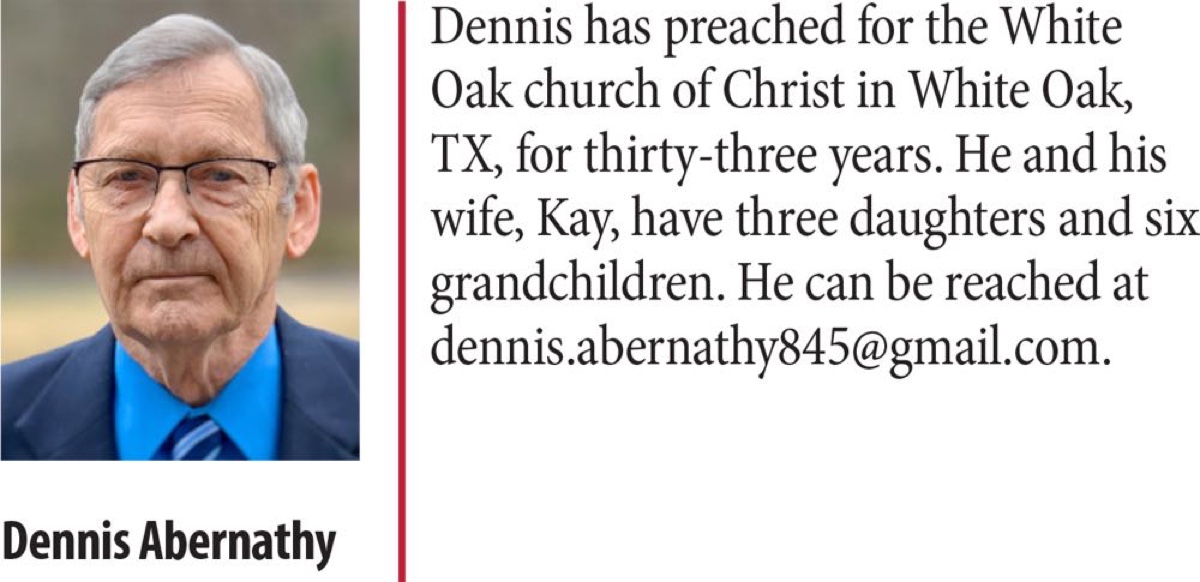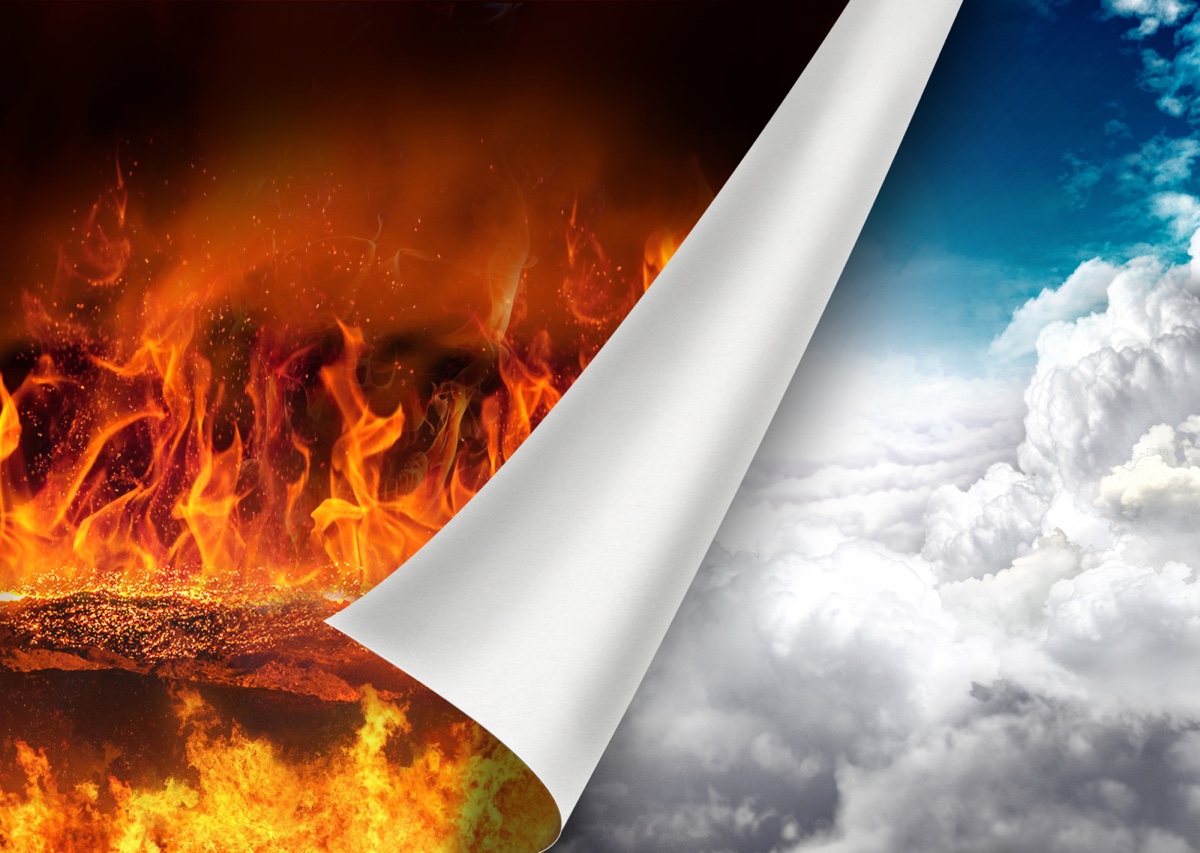by Dennis Abernathy
Synopsis: The road to hell is broad and busy. As we journey the pathway of life, Jesus exhorts us to “enter by the narrow gate” and willingly walk the “difficult” way that leads to life (Matt. 7:13-14).
The subject of hell has always fascinated people. This is evident, not only in modern media and entertainment, but also in ancient volumes such as Dante’s Inferno and Milton’s Paradise Lost.
Because of today’s technology, like MapQuest, we can calculate how many miles away from hell we live, and determine what roads lead to it. We can also know that its population is 266 souls and its zip code is 48169. Of course, I’m speaking of Hell, Michigan!
Nonetheless, the hell of the Bible is described as a much different place, populated by the Devil and his angels (Matt. 25:41). Although many deny there is such a place, and dislike hearing sermons on the subject, the Bible emphatically teaches hell’s reality. Once a weak member who didn’t like such lessons admonished the preacher, “Preach about the meek and lowly Jesus.” In response, the preacher replied, “That’s where I got my information about hell!” Jesus spoke of the eternal abode of the lost more than any of the apostles and prophets. Of the twelve times that “hell” (Greek: gehenna) appears in the New Testament, Jesus used it eleven times. Truly, He was meek and lowly, but the Lord Jesus Christ was also a “hellfire and brimstone” preacher!
Just as there is a proper place called heaven, there is an actual place called hell. How can people reject the biblical doctrine of the reality of hell, and, at the same time, accept biblical teaching on the reality of heaven? Some assert that, whereas the righteous go into everlasting bliss, the wicked simply cease to exist. However, Matthew 25:46 teaches that hell will “last” as long as heaven does. The same Greek word for “eternal” or “everlasting” is used to describe both the “punishment” and the “life” in verse 46. If the punishment is not everlasting, then neither is the life in verse 46. And vice versa! If the life is everlasting, so is the punishment (Roper, 375). Thus, to deny the punishment of hell is to deny the joys of heaven!
Hell is graphically described as a place where there is “a furnace and lake of unquenchable fire and brimstone where the smoke of torment rises” (Matt. 3:12; 13:42, 50; Rev. 19:10; 20:10; 21:8); and where there is “black darkness” (Jude 13; Matt.8:12); and where there is “wailing and gnashing of teeth” (Matt. 13:42, 50). It is an “eternal” place where “their worm does not die” (Jude 13; Mark 9:42, 46, 48), and a place “prepared for the devil and his angels” (Matt. 25:41).
Interstate-75 leads to Hell, Michigan, but there is also a road that leads to the devil’s hell. This road to hell is “broad” (Matt. 7:13-14). It is a road spacious enough to accommodate people’s sins, for it is a one-way street to destruction and damnation! The road to hell is “enticing” because it is the road of sin and its pleasures, and sin is enticing (Prov. 1:10-11; Heb. 11:25). Such pleasures are passing and short-lived and lead only to death. The road to hell is fraught with easy choices. It is popular to take drugs, drink alcohol, smoke pot, engage in illicit sex, cohabitate, gamble, etc. Therefore it is easy to blend in with the multitude (Exod. 23:2). The choices are easy and appealing, but the consequences are serious and hard (Prov. 13:15; Rom. 6:23). The road to hell is filled with multitudes of people because the way of sin is easy and popular. The ways of sin and this old world will pass away, and then there is hell!
The good news is that nobody has to go to hell. Hell is a prepared place for unprepared people, while heaven is a prepared place for prepared people. You can begin your preparation for heaven by obeying the gospel of Christ. If you are currently on the road to hell, you can change your destination by choosing to obey God. If you believe that Jesus is the Son of God, are willing to repent of your sins, confess with your mouth what you believe in your heart, you can be baptized for the remission of your sins (Mark 16:16; Acts 2:38; Rom. 10:9-10; Acts 8:37). You can remain on the right road by continuing to walk in the light and confessing sins committed (1 John 1:7-9).
One day, “when the Lord Jesus is revealed from heaven with His mighty angels in flaming fire,” and He takes “vengeance on those who do not know God, and on those who do not obey the gospel of our Lord Jesus Christ,” will you be one of those punished “with everlasting destruction” from His presence and the glory of His power? (2 Thess. 1:7-9).
Many fear a lot of things they ought not fear and do not fear the one thing they ought to fear. If we are going to be afraid, may it be over the eternal loss we can suffer at the hands of God. “Fear not them which can kill the body, but are not able to kill the soul: but rather fear Him which is able to destroy both soul and body in hell” (Matt. 10:28).
If I were to leave my home in East Texas and travel north toward Hell, Michigan, you could say I was on the road to Hell. After arriving there and traveling back home, you could say that I had been to Hell and back. Friend, if you go to the hell described in the Bible, you won’t ever be coming back! There you will enter and there you will stay! If there were a sign at the entrance of hell, it would surely read: “He who enters this place leaves all hope behind!” Think seriously about these things.
Roper, David. L. Truth for Today Commentary: Life of Christ. Vol. 2. Second Edition. CA: Resource Publications, 2011.


